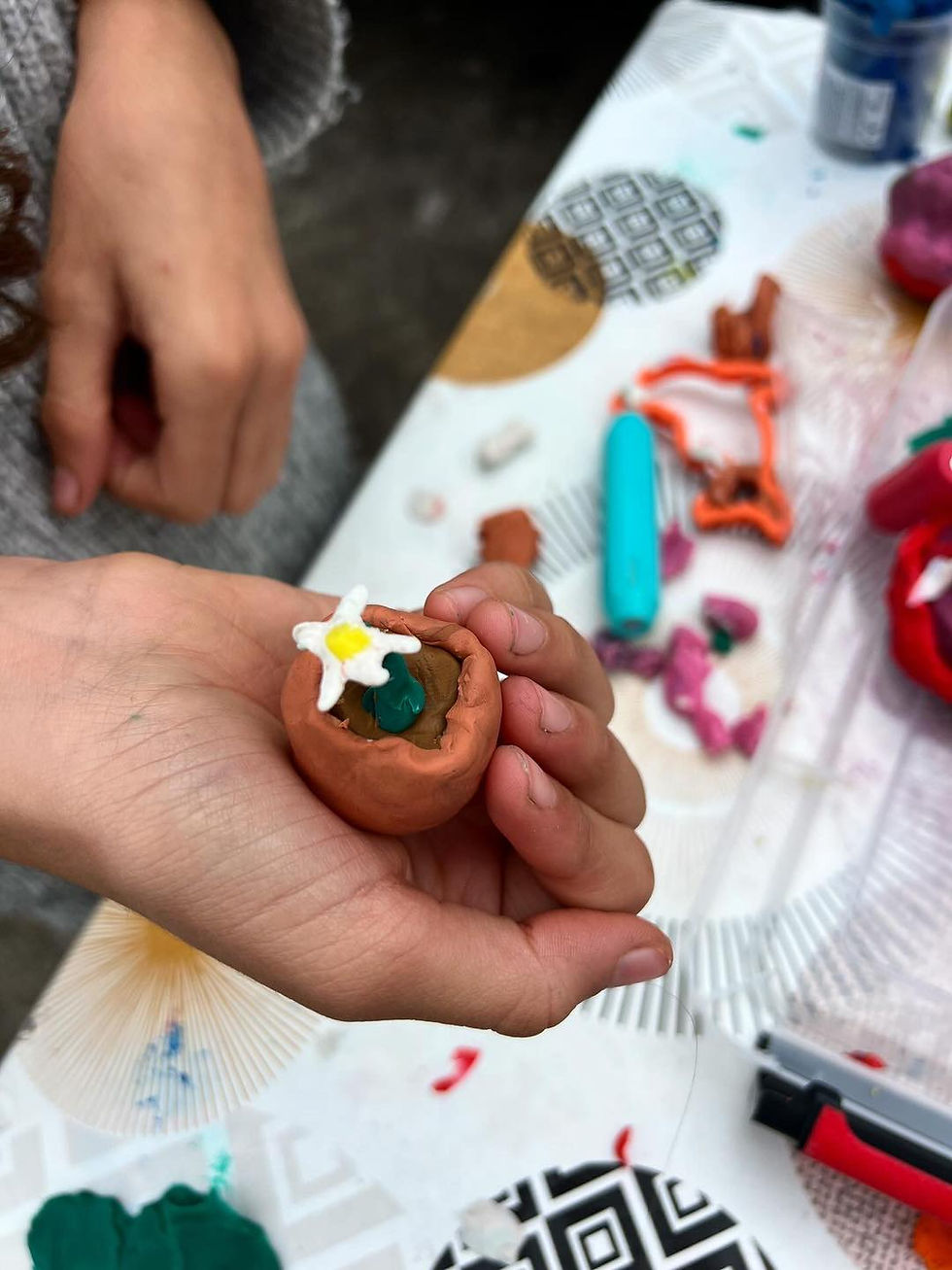Dunkirk Camp: some reflections
- Art Refuge

- Apr 20, 2017
- 2 min read

Over the past 6 months a small team of art therapists from Art Refuge UK has worked on Thursday afternoons in partnership with Medecins du Monde’s psychosocial team to deliver an open art therapy space for families and individuals in the Butterfly House in the state-run refugee camp at Grande-Synthe near Dunkirk. Our input amounted to one of the only offers of specialist psychological support in the camp, working alongside the remarkable Women’s and Children’s centres and various organisations and volunteers working against the odds to provide essential services.
On Monday night the camp was burnt to the ground following tensions between different groups, fighting and arson. The conditions in the largely Kurdish camp were poor and the atmosphere both oppressive and volatile, criminal gangs and trafficking ever present, the place in a constant state of flux and uncertainty. It was often impossibly challenging for people living there. Since Monday night around 1000 former camp residents have been looked after by the town in five gymnasiums and are awaiting relocation to accommodation centres across France tomorrow. Several hundred other refugees are unaccounted for, including around 80 unaccompanied minors, and huge concerns remain for them.
Throughout our time in Dunkirk we witnessed connections developing between people around tables, across generations, through art making and play. We have seen children develop strong bonds with each other, babies start to walk, adults offer kindness, care and attention to the children and between themselves – many active and moving examples of absorption, resourcefulness and coping. We have met mothers, fathers, uncles and aunts, grandparents; engineers, farmers, craftspeople, filmmakers, artists, psychologists, students and so on. We have listened to painful and at times traumatic recollections of persecution and journeys; as well as fears, and hopes, for a different sort of future, often in the UK.
One of the ways we work is to look after the artwork made in folders and remove these and our materials from the camp each week to store safely; so the portfolios of images survive to act as a further witness to the individual and collective imagination of the people who made them, frustrating as it is that we are unable to continue our work or say goodbye in a way that respects the connections we have built together.
Some individuals have however already contacted us to ask that digital images of their artwork are sent to them so that they can hold them on their mobile phones. This is powerful testimony to the significance that the spaces we provide hold for people, places to create and find meaning through art making.
We continue to work weekly with our partners Medecins du Monde and Secours Catholique in Calais and resume our work next Thursday.
With thanks
The Art Refuge UK team



Comments